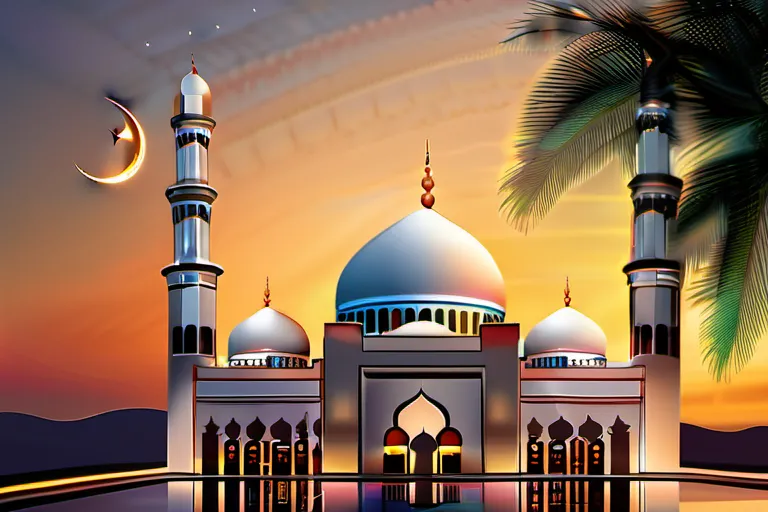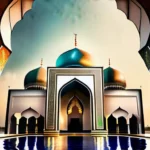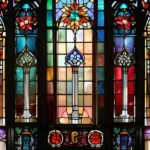Explore the fundamental beliefs and practices that form the backbone of Islamic faith.
Islam, one of the world’s major religions, is built upon five essential pillars. In this article, we delve into each pillar, providing a detailed examination of their significance and role in the lives of Muslims worldwide.
The Foundation: Faith
Imagine you are building a house; the first brick laid must be strong and solid, for it forms the foundation on which everything else depends. In Islam, this foundational brick is the belief in Tawhid, or the Oneness of Allah. This concept serves as the bedrock upon which all other pillars of faith are built.
How do you express your belief in Tawhid? Through the declaration known as the Shahada – a statement that encapsulates the essence of your faith. By reciting, ‘There is no god but Allah, and Muhammad is His messenger,’ you affirm not only your devotion to Allah but also your acceptance of Prophet Muhammad as His chosen servant and communicator.
Consider this metaphor: Tawhid is like the trunk of a tree, providing stability and nourishment. Without it, the branches (the other pillars) would wither and fall. This belief in one God unifies Muslims across the globe, creating a sense of community that transcends cultural and geographical boundaries.
But why does this belief matter so much? It shapes every aspect of life for a Muslim – from personal interactions to social responsibilities. By acknowledging the ultimate authority of Allah, believers guide their actions and decisions, ensuring they align with His will.
How do you see your relationship with Allah through the lens of Tawhid? Is it one of awe, respect, or both? Do you feel a deep connection that transcends religious rituals?
The Shahada is not just a statement; it’s an affirmation of faith that transforms daily life. It guides Muslims to lead lives of righteousness and compassion, making the world a better place through their actions.
Daily Devotion: Prayer
The Five Pillars of Islam serve as the backbone of the Islamic faith, and Salah, or prayer, stands at its core. But why is prayer such a crucial practice in the lives of Muslims? Is it merely a ritualistic act, or does it hold deeper significance?
Imagine praying as a bridge connecting you to the divine presence of Allah. Each time you perform Salah, you’re not just reciting verses; you’re engaging in a profound conversation with your Creator. These prayers are a reminder that our existence is part of something greater than ourselves.
- Salah is more than just saying words. It’s about establishing a personal relationship with Allah, invoking His blessings and seeking guidance through life’s challenges.
- By performing the five daily prayers – Fajr (dawn), Dhuhr (noon), Asr (afternoon), Maghrib (sunset), and Isha (night) – Muslims ensure a consistent connection with their faith, much like tending to a garden that needs constant care and attention.
Each prayer carries its own unique significance. Fajr is the dawn prayer, when the world awakens; Dhuhr marks midday, a moment of reflection in the heart of the day; Asr brings us back to our responsibilities with renewed strength; Maghrib heralds evening, a time for gratitude and contemplation; and Isha offers solace as the night blankets the earth.
Prayer isn’t just about standing at a mosque. It’s an individual experience that can be performed anywhere – in a bustling city street or amidst nature’s tranquility. The essence of Salah lies in its ability to anchor your spirit, making each moment count before the almighty.
Salah thus becomes not just a pillar but a lifeline that sustains and guides Muslims through their daily lives. It’s about aligning oneself with divine will, ensuring that every breath is infused with purpose and devotion.
Charity and Community: Zakat
Imagine walking through a bustling market, where vendors hawk their goods, and shoppers navigate the narrow streets. Now, picture this market as your community, and consider how Zakat, the act of giving, can transform it from just another bazaar into a place of true social justice.
Zakat is not merely an optional charity; it’s a fundamental pillar that every Muslim is expected to fulfill. By setting aside a specific percentage of their wealth for those in need, Muslims ensure that everyone has a fair chance to live with dignity and basic necessities. It’s like a safety net woven into the fabric of society, making sure no one falls through the cracks.
But Zakat is more than just financial; it’s about empathy and understanding. By giving, you not only help alleviate poverty but also remind yourself of your own blessings and responsibilities towards others. It’s like planting a seed in someone else’s garden—though small, its impact can grow exponentially over time.
How does Zakat differ from regular charity? While regular acts of kindness are wonderful, they often depend on personal whims. Zakat, however, is structured and obligatory, ensuring that wealth redistribution happens consistently and equitably. This consistency is crucial for fostering a society where everyone has access to basic needs.
Moreover, giving Zakat connects you with the broader Muslim community. It’s like a river flowing through different valleys; while each valley might have its own tributaries, they all join together in a shared purpose. By participating in this act, you’re part of something much larger—a global network of support and solidarity.
So, as we move forward to the next pillar of Sawm (fasting), remember that Zakat is not just about giving; it’s about building a community where every member feels valued and supported. In doing so, we create a world that’s more like a well-structured jigsaw puzzle—each piece fitting perfectly into its place, contributing to the greater whole.
Fasting for Reflection: Sawm
Imagine a journey, not one that leads to distant lands, but into your own heart and mind—a spiritual expedition called Sawm (fasting). Fasting during Ramadan is more than just abstaining from food; it’s a profound act of reflection and purification.
In the month-long observance of Ramadan, Muslims fast from dawn until sunset. This act serves as a metaphor for the human soul, highlighting its capacity to endure and grow stronger through discipline and self-control. By emulating the Prophet Muhammad’s life of austerity, believers seek not only physical purification but also spiritual cleansing.
But fasting is not just about what you don’t eat; it’s a holistic practice that includes abstaining from bad habits and thoughts. It challenges one to look inward, much like peeling back layers of an onion until the core is revealed. By refraining from food and drink, Muslims symbolically detach themselves from worldly desires, focusing instead on their connection with Allah.
The physical benefits are tangible too—fasting can improve health by reducing cholesterol levels and blood pressure. But more importantly, it teaches humility and empathy. Imagine walking a day in the shoes of someone who faces hunger every single day. Fasting can be a powerful reminder of gratitude for what we have.
So why is fasting so integral to the Islamic faith? It’s because Ramadan isn’t just about abstaining; it’s about embracing a deeper sense of purpose and awareness. As the moon waxes and wanes, so too do our spiritual practices ebb and flow, reinforcing the cycle of life and renewal.
Each fast is a step toward greater self-control and discipline, shaping not just who we are today but who we aspire to be tomorrow. In this month-long marathon, believers run towards unity, compassion, and closer proximity to Allah. Fasting isn’t merely an obligation; it’s a pathway to a more fulfilling and meaningful life.
Pilgrimage to Mecca: Hajj
The pilgrimage to Mecca, known as Hajj, stands as one of the most profound and unifying experiences in Islam. Imagine standing at the heart of millions of believers from every corner of the globe, all united by a common purpose. What does this journey mean for those who make it?
Through the rituals of Hajj, Muslims reaffirm their submission to Allah. The symbolic acts, such as walking seven times around the Kaaba and stoning the devil’s pillars, serve as a powerful reminder of the trials faced by prophets and the faithful. These actions are more than just ceremonial; they embody the essence of faith, struggle, and resilience.
Why is Mecca so sacred? It holds the key to understanding not only the physical journey but also the spiritual quest that defines Hajj. The city is believed to be where Abraham and Ishmael built the Kaaba, a house of worship that predates many other holy sites. Pilgrims traverse miles just to touch its walls, feeling a connection to centuries of pilgrimages past.
During Hajj, the barriers between rich and poor, black and white, old and young dissolve as everyone dons the ihram, simple white garments that symbolize purity. This unity is not merely surface-level; it’s a profound statement on equality before Allah. The pilgrimage becomes a metaphor for the spiritual journey of life, where one must leave behind earthly concerns to find inner peace and connection.
Consider this: By participating in Hajj, Muslims from different cultures and backgrounds are bound together by shared rituals and experiences. It’s like a giant human tapestry, woven with threads of faith, unity, and submission. Each step taken towards the Kaaba is a step towards spiritual renewal and communal bonds.
As you ponder the significance of Hajj, think about how this pilgrimage enriches not just the individual but also the global Muslim community. It’s a living testament to the power of unity in diversity, where every believer can find solace, guidance, and the opportunity for sincere reflection on their faith.
Living a Life of Integrity: Jihad
Have you ever pondered what it means to live a life of integrity? In Islam, one of the key aspects that guide believers in this quest is Jihad. Often misunderstood and misinterpreted, Jihad has taken on many meanings beyond its fundamental definition. But let’s delve into this concept, exploring its true essence and significance.
When we think of Jihad, what first comes to mind? Is it the image of armed conflict or militant action? While these are indeed forms of Jihad, they represent only a small part of its broader scope. The literal meaning of jihad is ‘struggle’ and can encompass various forms of personal and spiritual effort. It’s like striving to be the best version of yourself in every aspect of life—whether it’s in your faith, work, or relationships.
In a broader context, Jihad involves engaging in acts that promote righteousness and good deeds. This can range from standing up for justice and helping those in need to maintaining one’s faith and seeking knowledge. It’s about the constant struggle against one’s own weaknesses and sins, striving to align oneself with God’s will.
But why is Jihad so important? Because it’s not just about external actions; it’s deeply rooted in personal transformation. Imagine a tree that has grown strong roots deep into the earth—those roots are like our struggles for righteousness, grounding us and giving us strength to face life’s challenges. Just as a tree needs to weather storms by holding on tight to its roots, we too need to stand firm through Jihad.
So, the next time you find yourself in a difficult situation or tempted to stray from your path, remember that every struggle is an opportunity for growth. Just like a butterfly emerging from its cocoon, each challenge can transform us into something stronger and more beautiful. And isn’t that what living a life of integrity truly means—becoming the best version of ourselves through continuous effort and struggle?
Conclusion
 By understanding these Five Pillars of Islam, you will gain a deeper appreciation for the faith and its followers. Remember, knowledge is a powerful tool for fostering mutual respect and understanding among people of different beliefs.
By understanding these Five Pillars of Islam, you will gain a deeper appreciation for the faith and its followers. Remember, knowledge is a powerful tool for fostering mutual respect and understanding among people of different beliefs.











